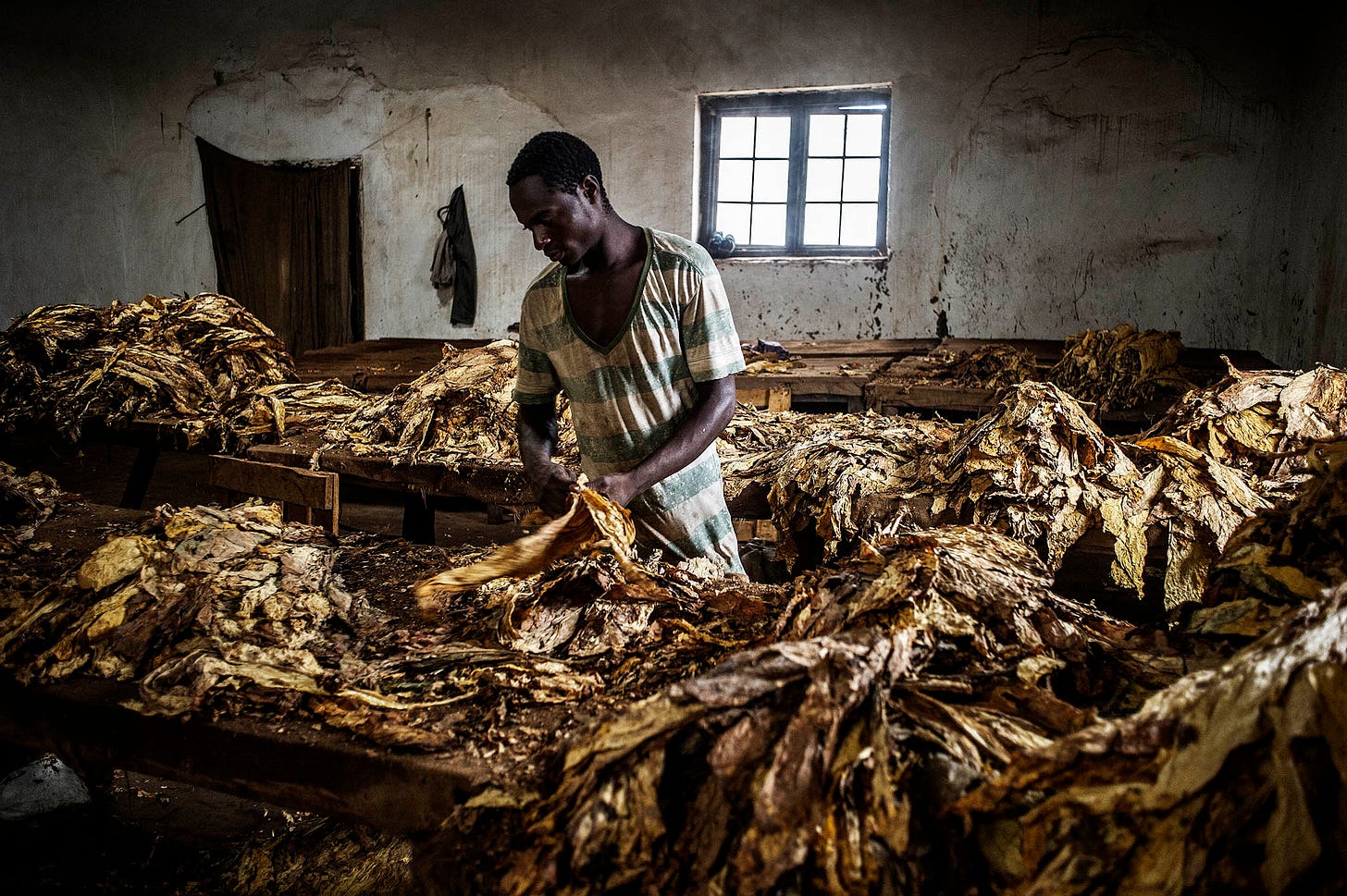Smokes and mirrors: How Big Tobacco may have avoided Malawi’s taxman
Malawi is one of the world’s biggest producers of tobacco. This should be a cash cow for a strapped government. It isn't.
Zuza Nazaruk and Josephine Chinele
If you’ve ever smoked a cigarette, chances are you have inhaled a little of Malawi’s most famous crop. The southern African country is one of the world’s biggest producers of tobacco. This should be a cash cow for a strapped government. Instead, one of the industry’s biggest players pays barely any tax, while extracting massive profits for its shareholders. How do we know? We’ve seen some documents we were not supposed to.

2020 was a really good year for Alliance One Tobacco (Malawi) Limited, which controls 40% of Malawi’s tobacco market. This is the local subsidiary of one of the world’s largest agricultural companies, Pyxus International.
That year, Alliance One exported nearly 27-million kilogrammes of Malawi-grown tobacco leaf worth $173.6-million, The Continent found, by independently analysing export data.
Corporate income tax in Malawi is supposed to be 30% of a company’s profit. One would expect this revenue to fetch the government a tidy sum in income tax.
But documents from the Malawi Revenue Authority, leaked to The Continent, show that in fact the company paid nothing. Zero. Zilch.
The document also covers 2021, and shows that Alliance One paid just $41,000 in income tax, after exporting tobacco worth at least $151-million.
Alliance One did not respond to our request to explain why it declared little or no profit despite substantial export revenue in those years.
The Malawi Revenue Authority refused to comment on the matter, saying that taxpayers’ matters are confidential.
Where did all the money go?
The leaked documents offer a clue on what may have happened. In the two years covered, they show that Alliance One did pay $843,000 in a category called “withholding tax”. This is a 20% levy that is applied by the government when local companies pay foreign entities. It suggests Alliance One may have moved $4.2-million in taxable profits out of Malawi through such payments.

This is a technique, which can be used by multinational companies “to shift profits and avoid taxes,” according to Vincent Kiezebrink, a researcher at the Netherlands-based Centre for Research on Multinational Corporations.
The payments to overseas entities that help multinationals avoid tax usually take the form of interest on loans and royalties between related companies. Pyxus International, the Alliance One’s parent world by March 2020, giving it plenty of room to manoeuvre.
Customs data also shows that Alliance One sold about a fifth of the tobacco leaf to sister companies within the Pyxus International group. This is at an average of $5.31 per kilogram, which is lower than the $5.39 per kilogram average for sales to unrelated companies.
Intra-group sales at lower prices than the fair market value can also help companies avoid taxes in countries with higher tax rates by lowering how much sales revenue they have to declare. In 2020 and 2021, Alliance One appears to have lowered its Malawi sales revenue by more than $980,000 with this practice, which is often referred to as transfer pricing.
A losing hand for most Malawians

Michael Msukwa grows tobacco in Malawi’s northern region. He is contracted to supply his crop to Alliance One, but said the contract is exploitative and barely allows him to make any profit.
He chairs a collective of 30 farmer groups that are contracted by Alliance One.
“We want to improve our livelihoods and provide for our families … But [Alliance One] is greatly benefiting from tobacco farming, more than us, the farmers,” he said. “When you’re in contract farming, you’re trapped. You have no say about your tobacco,” he added.
Alliance One binds contracted farmers to sell only to it and then asks banks to lend them money for fertilisers and other inputs. The company commits to paying the bank should the farmer default.
Msukwa said that he agreed to a loan of five million kwacha ($2,980) in a recent farming season, but 10-million kwacha was deducted from his sales income for loan repayment, leaving him with two million kwacha for three months of work.
“It’s as if I only farmed to repay the loans. I got very little compared to the amount of money and energy I invested,” Msukwa said.
The company denies that its contracts with farmers are exploitative, saying that “we keep the farmer at the heart of everything we do”.
Despite leaving a big part of the cost of producing tobacco to farmers, the multinational gets away with declaring little to no profit from selling it. “The dutybearers are aware that these companies are not paying enough but someone may be benefiting from these deals at the expense of our sweat,” Msukwa said. And that affects more Malawians than the tobacco farmers. It “cripples our government’s potential to invest in sectors that are important to Malawi citizens.
The government is failing to invest in the health, agriculture, and education sectors due to limited resources,” said Wales Chigwenembe, a social accountability expert.
Despite all this, farmers feel they have no other choice but to work with the companies. “We couldn’t afford the inputs. If we had sustainable means to grow tobacco without the companies, we wouldn’t involve them,” said Muskwa.



